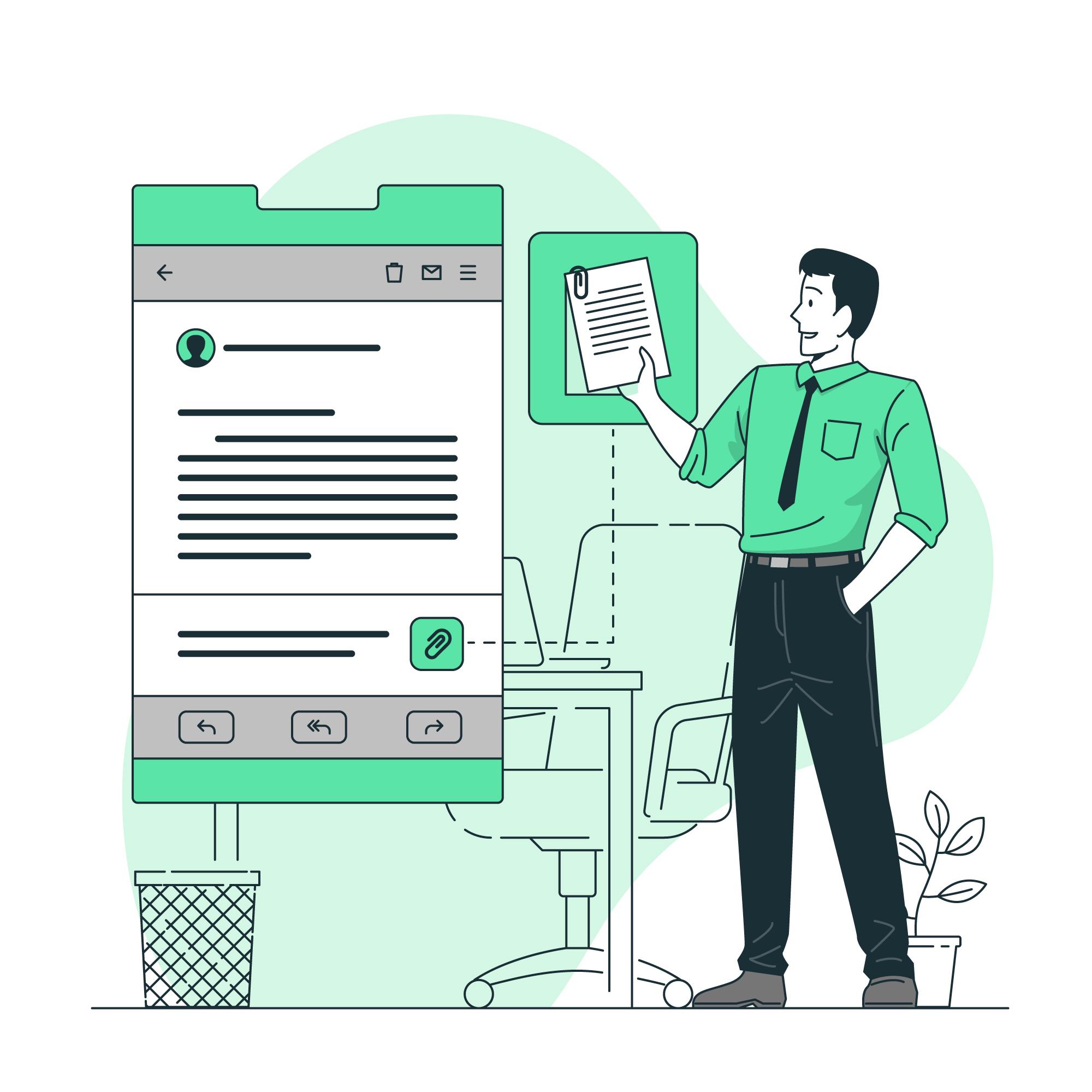Custom Web Development vs Templates: Which Wins?

Strong 8k brings an ultra-HD IPTV experience to your living room and your pocket.
Why Custom Web Development Beats Templates: Real ROI for Businesses
Choosing between a custom website and a template-based one is one of the first big decisions a business faces when going online. While templates offer speed and low cost, custom web development delivers long-term performance, SEO benefits, and better brand authority.
Key Points:
- Custom websites deliver better performance, SEO, and long-term ROI.
- Templates are fast and affordable but come with serious limitations.
- Businesses seeking growth and scalability should choose custom development.
This guide will break down the differences, compare the ROI, and help you make the best choice for your business growth. Whether you're launching a new company, rebranding, or scaling, this article will explain how a well-built website can be a true asset to your business.
What Is Custom Web Development vs Template-Based Websites?
Custom web development involves designing and coding a website from scratch to meet unique business goals. These websites are tailored in every aspect — from the front-end user experience to the back-end functionality. Every feature, page, and flow is built with a specific audience and business objective in mind. The result is a digital platform that is fully aligned with your business identity and capable of adapting as your business grows.
In contrast, template-based websites are built using pre-designed layouts and frameworks offered by platforms like WordPress, Wix, Squarespace, or Shopify. These templates can be customized to a degree (changing colors, fonts, images, and some layout sections), but structural changes and advanced features are often limited. This approach works well for basic websites or MVPs, but falls short when a business requires high customization or performance.
Example:
Imagine a healthcare SaaS platform looking to offer online appointment bookings, dynamic dashboards for patients, and multilingual support. A custom site can integrate all of this seamlessly. A template site would likely require multiple plugins or workarounds, slowing performance and introducing instability.
At TechVerdi, we provide expert custom web development services tailored to your business goals. Whether you need a high-performing marketing website, a powerful SaaS platform, or a complex eCommerce solution, our team builds digital experiences that deliver results. Every website we develop is unique, scalable, and aligned with your brand identity — no off-the-shelf templates, no compromises.
Major Limitations of Template-Based Websites
Templates have their place, especially for solopreneurs or early-stage startups. But they can quickly become a bottleneck as your business grows. Here are the most common limitations:
1. Poor Scalability
Template websites often struggle to scale. Most templates are not designed to handle high traffic, advanced server-side processing, or large-scale data operations. As your user base increases or as your site requires complex logic, templates can buckle under pressure, leading to downtime, errors, or sluggish performance.
2. Generic User Experience
Since templates are designed for mass use, many websites end up looking the same. This lack of originality weakens your brand identity and can reduce visitor trust, especially in competitive industries. It's harder to create an emotional connection or deliver a memorable user experience when your website feels like hundreds of others.
3. Limited Customization
Want to add a custom pricing calculator, API integration, or progressive web app functionality? With templates, these features often require third-party plugins. Even then, the integration is rarely seamless. You may also face design restrictions where changing a layout or adding new page types becomes a technical headache or isn’t possible at all.
4. SEO Challenges
Templates typically include bloated code and unnecessary JavaScript libraries, which slow down page load time. They're also harder to optimize for mobile, accessibility, and structured data — all key factors in Google's ranking algorithm. Because templates cater to the masses, they're rarely built with advanced SEO tactics in mind.
Example:
A marketing agency using a template theme with heavy image sliders and third-party animations saw their mobile site load in over 7 seconds. After switching to a custom build, the site loaded in under 2 seconds, boosting their Google rankings and engagement by over 40%.
Advantages of Custom Web Development
In today’s competitive digital landscape, your website isn’t just a marketing asset—it’s a core part of your customer experience. While off-the-shelf templates offer convenience, they often limit your brand’s potential. Custom web development, on the other hand, unlocks unmatched flexibility, performance, and strategic alignment. Here's how custom development provides a clear edge over templated solutions:
1. Unique Design That Reflects Your Brand
Custom websites are designed from the ground up to align perfectly with your brand identity, tone of voice, and audience expectations. Instead of forcing your business to fit into a pre-made template, custom development allows your site to be an authentic digital extension of your brand.
Key benefits:
- Visual and interactive elements that reinforce your brand story
- Layouts tailored to your ideal customer’s journey
- Consistent branding across every screen size and device
- Creative freedom to stand out from competitors
In saturated markets, a distinctive and user-friendly design not only grabs attention but also builds trust quickly, significantly improving engagement, retention, and conversions.
2. Optimized for Speed and SEO
Custom development means full control over your codebase, allowing for clean, efficient, and purpose-built architecture. Unlike bloated themes overloaded with unnecessary scripts and plugins, custom websites are fast, responsive, and technically sound right out of the gate.
Built-in performance advantages:
- Clean HTML/CSS/JavaScript for fast page loads
- Core Web Vitals compliance to meet Google’s ranking criteria
- Mobile-first design and responsive layouts
- Technical SEO baked into the foundation (semantic structure, schema markup, canonical tags)
- CDN integration, lazy loading, and server-side rendering capabilities
These optimizations result in faster indexing, higher search engine rankings, and a smoother user experience that keeps visitors engaged longer.
3. Scalable and Future-Proof Architecture
A major strength of custom websites is their ability to grow alongside your business. Whether you’re launching new features, entering new markets, or integrating enterprise tools, a modular and extensible architecture ensures your site can scale seamlessly.
Scalability features:
- Easy integration with CRMs, ERPs, marketing automation, or payment gateways
- Component-based design for quick feature development
- Ability to support high traffic volumes without performance dips
- Future functionality (e.g., customer portals, AI tools) can be added with minimal friction
Example:
Let’s say today you want a lead-generation landing page. Six months later, you decide to introduce a customer login area or e-commerce functionality. With a custom build, these updates are an extension, not a complete rebuild.
4. Enhanced Security by Design
Security is often one of the most overlooked aspects of templated sites. With dozens of third-party plugins, each introducing its own potential vulnerabilities, keeping a template site secure can be a full-time job. Custom development drastically reduces this risk.
Security advantages:
- Fewer external dependencies mean fewer entry points for attackers
- Custom user authentication, encrypted databases, and secure file transfer protocols
- Role-based access controls and compliance with industry-specific regulations (HIPAA, GDPR, etc.)
- Ability to design and deploy proactive threat mitigation measures
Case Study:
A legal firm required a secure, easy-to-use client portal to handle document sharing and appointment scheduling. A custom Laravel-powered solution was built with encrypted document storage, secure login, and calendar integrations. The result? A 25% reduction in support queries and a significant boost in client satisfaction.
Our custom web development services are designed for long-term growth and performance. We use modern technologies like Laravel, React, and Next.js to create clean, fast, and SEO-optimized websites. From custom dashboards to API integrations and advanced security features, our development process focuses on usability, speed, and conversion, giving your business a true competitive edge online.
The Real ROI of Custom Web Development
Investing in a custom-built website isn’t just a design choice—it’s a business decision that can significantly impact your bottom line. While template-based solutions might seem cost-effective upfront, they often fall short in areas that truly drive long-term ROI. Let’s break down the key ways custom development pays off, both immediately and over time.
1. Higher Conversion Rates
Custom websites are purpose-built with your unique audience and business goals in mind. Every user journey—from landing page to checkout or lead form—is meticulously designed to guide users toward action. Unlike templates, which cater to generic use cases, custom development allows for:
- Personalized page flows based on user behavior
- Strategic placement of CTAs tailored to your funnel
- Seamless A/B testing to refine performance
- Integrated analytics that inform iterative improvements
By aligning design, functionality, and messaging with your user personas, custom sites deliver lower bounce rates, longer session durations, and significantly higher conversion rates. In other words, you get more value from every visitor.
2. Lower Maintenance Costs Over Time
Template websites often rely heavily on third-party plugins and theme frameworks. These components regularly require updates, and with updates come risks of compatibility issues, downtime, or even security vulnerabilities. Over time, this leads to mounting costs in both dollars and lost productivity.
In contrast, custom websites are built on modular, maintainable architectures. This means:
- Fewer external dependencies to break or update
- Clean, well-documented code for easier fixes
- Development teams that understand the system inside and out
With fewer emergencies and more predictable update cycles, businesses save significantly on ongoing maintenance and avoid costly disruptions.
3. Longer Site Lifespan
The average shelf life of a template-based website is 2–3 years. As your business grows, these templates often can't scale with new features, integrations, or branding needs. At that point, a full redesign becomes inevitable.
Custom-built websites, on the other hand, are designed with longevity in mind. A scalable, extensible foundation means your site can evolve with your business without needing to start from scratch. Many custom websites remain competitive and performant for 5–7 years with only minor updates, offering:
- Long-term brand consistency
- Better ROI from the initial investment
- Reduced need for full redesigns or platform migrations
4. Stronger SEO Performance
Search engine visibility is critical for driving organic traffic, and a custom website provides significant advantages here. With full control over technical architecture, SEO best practices can be built in from day one, including:
- Fast load times and optimized performance
- Semantic HTML and proper heading structure
- Schema markup and structured data integration
- Clean URL structures and internal linking strategies
These elements are often difficult or impossible to implement properly in off-the-shelf templates. When SEO is embedded into your site’s DNA—not bolted on later—it leads to sustained ranking improvements and higher organic traffic over time.
5. Case Study: SaaS Company Sees 70% Lead Growth
To illustrate the real-world impact of custom development, consider this example:
A SaaS startup transitioned from a standard WordPress theme to a custom-built React website tailored to their buyer journey. The results were dramatic:
- Site Speed: Load time dropped to just 1.1 seconds
- Technical Performance: Passed all Core Web Vitals
- SEO Impact: Ranked in the top 3 for key service keywords
- Lead Generation: 70% increase in qualified leads
- Cost Efficiency: 60% reduction in Customer Acquisition Cost (CAC)
This kind of transformation isn't rare—it’s what happens when your digital presence is strategically aligned with your business goals through custom development.
Businesses across industries choose TechVerdi because it is an expert custom web development agency. We don’t just build websites; we build platforms that support your growth, improve customer experience, and drive real ROI. If you're ready to move beyond templates and build something that truly represents your business, TechVerdi is your trusted development partner.
Conclusion
While templates may offer a quick and affordable solution, they often come with limitations that can hinder your business in the long run. Custom web development offers a personalized, high-performance, and scalable platform that delivers better results across SEO, speed, security, and user experience.
If you’re serious about long-term growth, customer trust, and ROI, a custom website is the smarter, more strategic choice. It gives you full control, better results, and a digital foundation your business can grow on for years to come.
FAQs
1. What is the difference between a custom website and a template?
A custom website is built from scratch to match specific business needs, while a template is a pre-designed layout with limited flexibility.
2. Is custom web development better for SEO?
Yes. Custom websites have cleaner code, faster load times, and better on-page SEO options.
3. Are template websites bad for business?
Not always. They're great for small projects, but lack scalability, speed, and uniqueness for growing businesses.
4. How much does a custom website cost?
Costs vary but typically range from $3,000 to $30,000+, depending on features and complexity.
5. How long does it take to build a custom website?
Anywhere from 4 to 12 weeks, depending on the project size and functionality.
6. Can a template website be customized later?
Somewhat, but heavily customizing templates can lead to performance and stability issues.
7. Do custom websites perform better than templates?
Yes. They're faster, more secure, and optimized for performance.
8. Which is better for long-term ROI: custom or template?
Custom websites usually provide higher long-term ROI through better conversions and lower ongoing costs.
Note: IndiBlogHub features both user-submitted and editorial content. We do not verify third-party contributions. Read our Disclaimer and Privacy Policyfor details.







